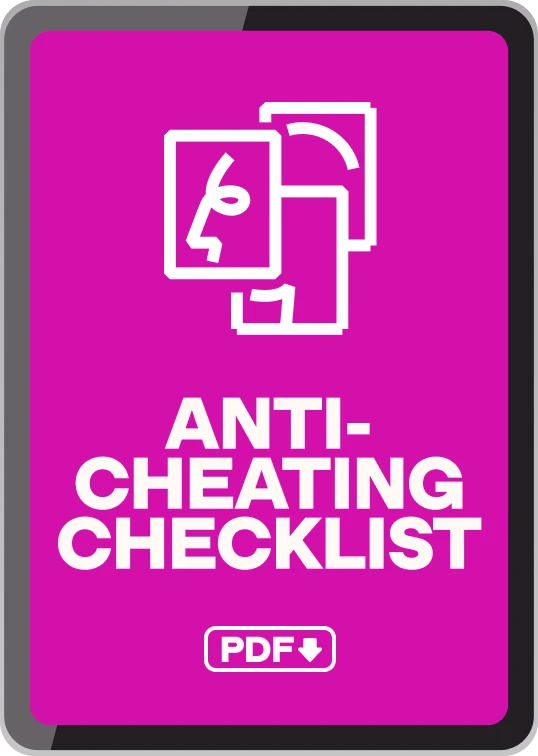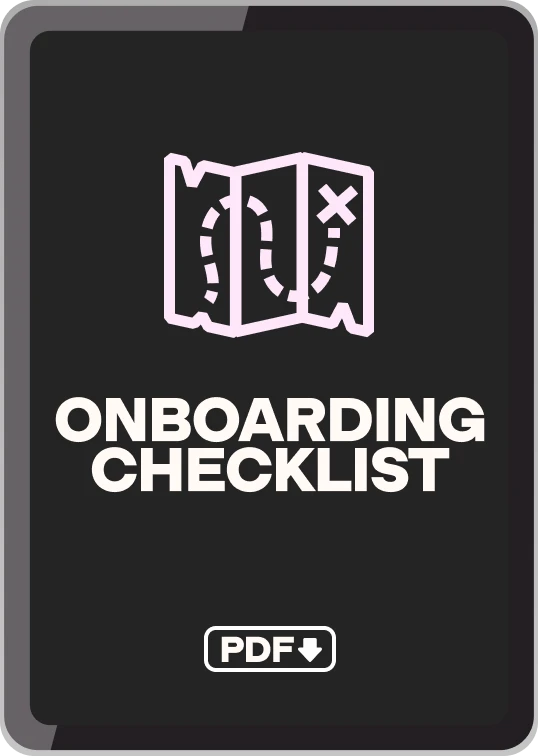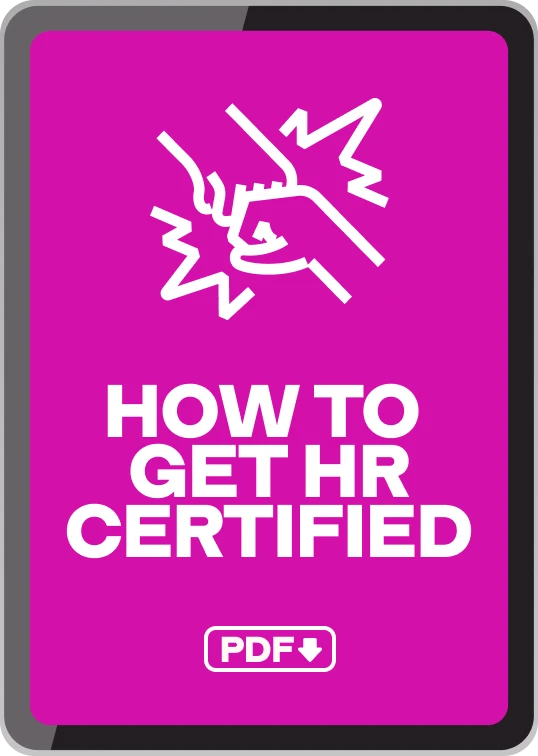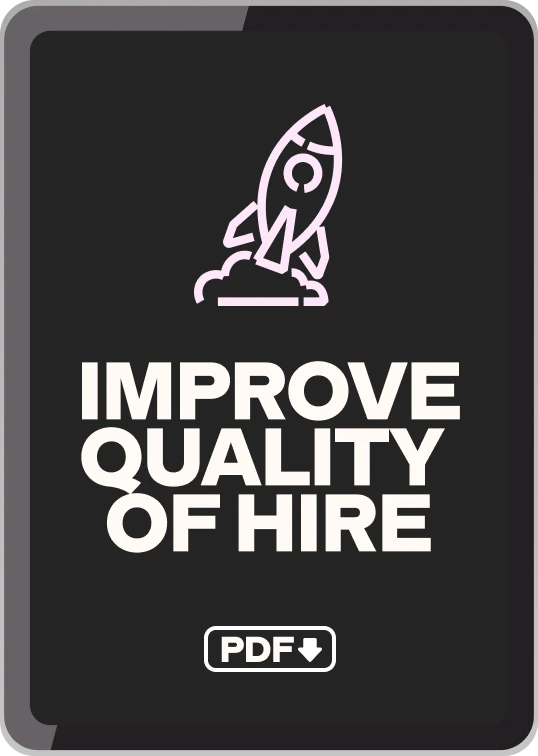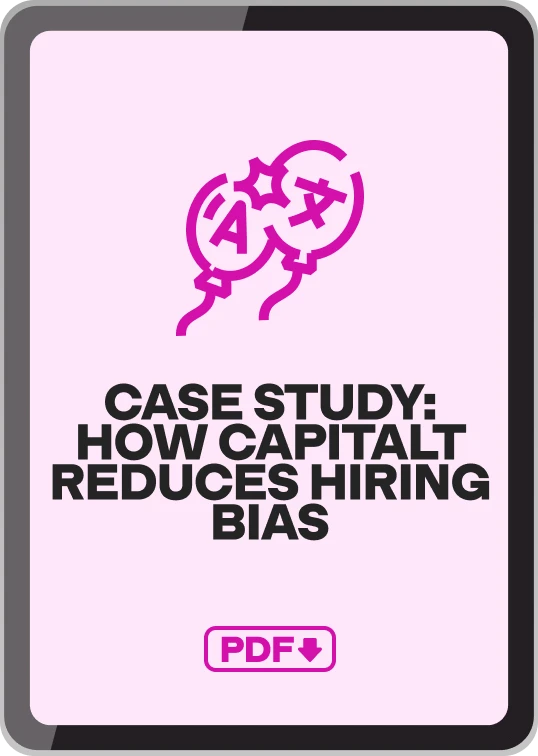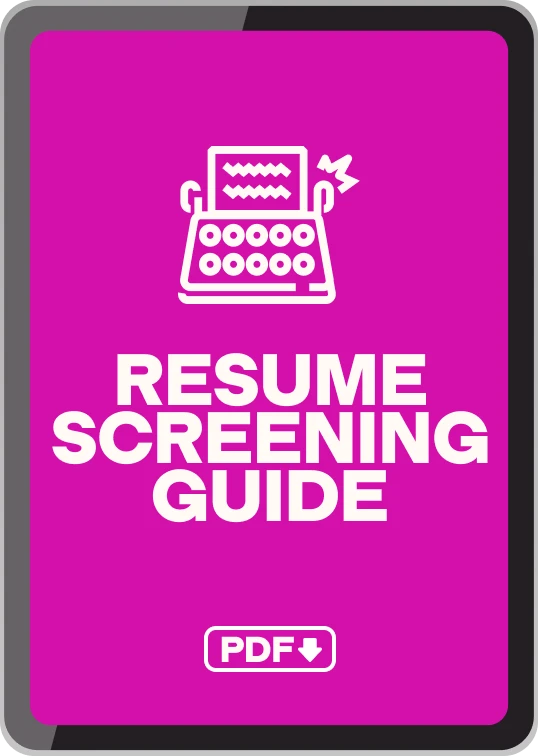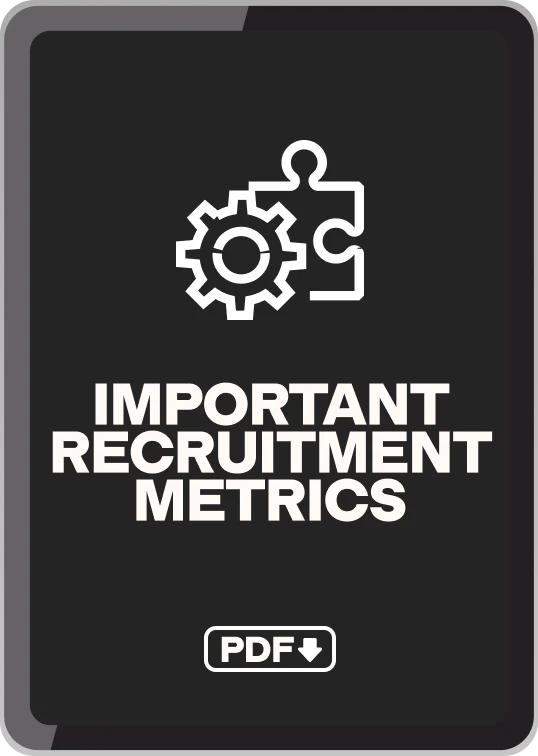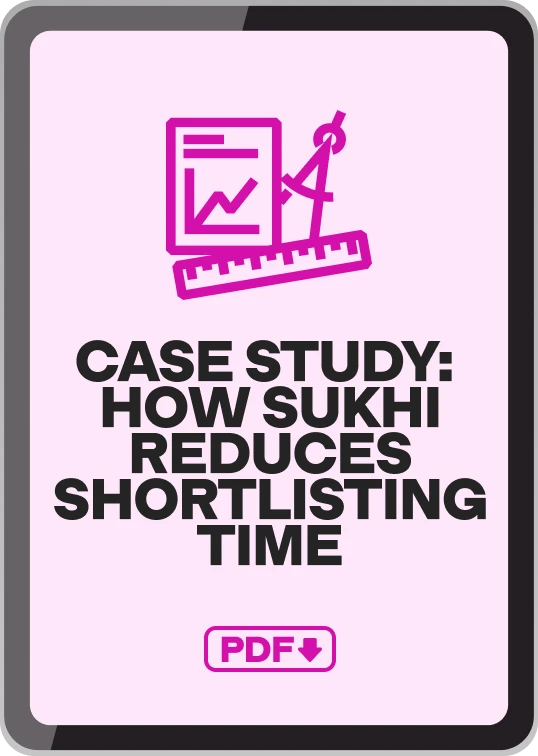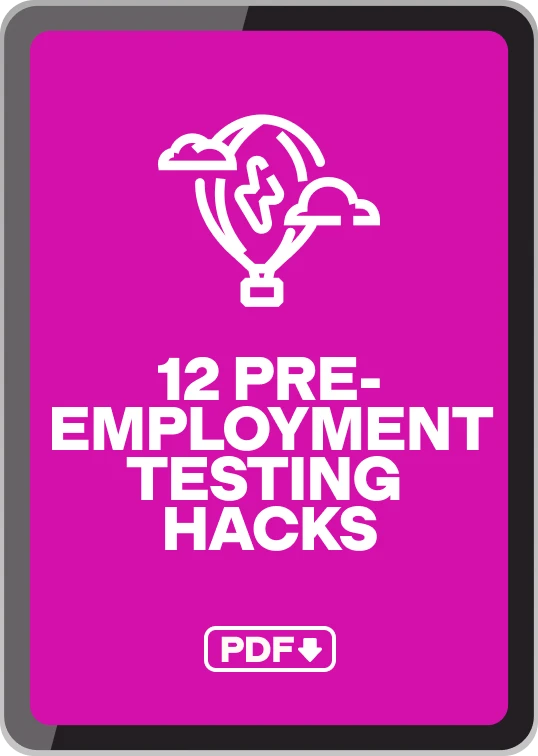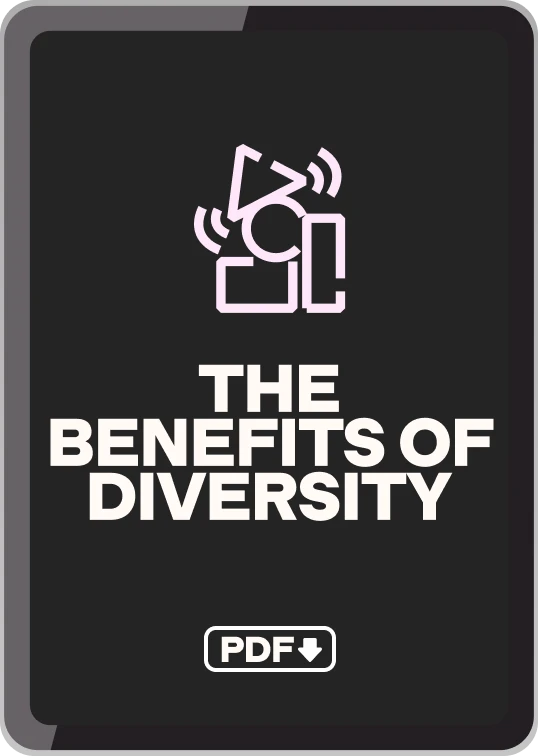71 Ruby on Rails interview questions to ask developers
Do you need an expert Ruby on Rails developer for your organization?
Are you wondering how you can make the hiring process more manageable?
Evaluating skills can be challenging, especially if you’re a non-technical recruiter. You may be looking for several technical skills in addition to soft skills.
One of the best ways to find expert developers is to use skills tests and then invite shortlisted candidates to an interview. And to find candidates with the right Ruby on Rails skills, you will need Ruby on Rails interview questions.
This article provides the best set of interview questions, divided into beginner, intermediate, and advanced questions. Take a look and choose from our list.
Table of contents
- 25 beginner Ruby on Rails interview questions
- 5 key beginner Ruby on Rails interview questions and answers
- 21 intermediate Ruby on Rails interview questions
- 5 key intermediate Ruby on Rails interview questions and answers
- 25 advanced Ruby on Rails interview questions
- 5 key advanced Ruby on Rails interview questions and answers
- When should you use Ruby on Rails interview questions?
- For which roles can you use Ruby on Rails interview questions?
- When hiring a Ruby on Rails expert, which soft skills should you look for?
- Use Ruby on Rails interview questions to hire an expert developer
25 beginner Ruby on Rails interview questions
We’ll start with 25 beginner Ruby on Rails interview questions that you can ask to evaluate the knowledge of junior candidates just entering the profession.
Explain what ORM means in Ruby on Rails.
Explain what “rake” means in Ruby on Rails.
Explain what Ruby on Rails is.
What is meant by “Rails migration”?
What does the subdirectory app/controllers do?
In what ways is Ruby on Rails limited?
Explain what load does in Ruby on Rails.
Explain what require does in Ruby on Rails.
What is a helper in Ruby on Rails?
How do you use helpers in Ruby on Rails?
Outline three components of Rails.
Explain what “scaffolding” is.
What are the advantages of scaffolding in Ruby on Rails?
What does MVC mean?
How does MVC work?
Explain which symbols developers use to define variables, global variables, and class variables.
What are the benefits of using Ruby on Rails?
What is a “gem” in Ruby on Rails?
What is a plugin in Ruby on Rails?
Explain the differences between gems and plugins in Ruby on Rails.
What does nil mean?
What does false mean?
Explain the differences between nil and false in Ruby on Rails.
Which skills do developers need to use Ruby on Rails?
Explain what delete does in Ruby on Rails.
5 key beginner Ruby on Rails interview questions and answers
Here are five critical beginner Ruby on Rails interview questions from the section above and some examples of answers that you should listen for from your candidates.
1. Explain what Ruby on Rails is.
Ruby on Rails is an open-source, server-side application framework that is written in the object-oriented programming language Ruby. It has many similarities to Python. Skilled developers use this framework to build websites and create web applications.
2. What is meant by Rails migration?
Candidates should be aware that developers use migrations to change databases using a structured approach. They may mention that developers can describe the changes they have made with the Ruby programming language and track the migrations they have already run with Active Record.
3. What is a gem in Ruby on Rails?
A gem in Ruby on Rails is a library developers use to add functionalities to a program without writing code since the gems contain reusable code. Gems help developers by enabling them to implement a broad range of features without having to code them from scratch, making development more efficient.
4. Explain what delete does in Ruby on Rails.
When responding to this question, candidates shouldn’t get confused between delete and destroy. They should be able to explain that delete deletes a record, whereas destroy both deletes a record and executes any callbacks on the model.
5. Which skills do developers need to use Ruby on Rails?
Developers need both technical and soft skills to use Ruby on Rails efficiently. Some of the skills your candidates may mention include:
Knowledge of the Ruby on Rails programming language
Validation and testing skills
Front-end development knowledge
Knowledge of databases
21 intermediate Ruby on Rails interview questions
This section lists 21 intermediate Ruby on Rails interview questions that you can ask mid-level candidates to assess their skills.
How do you use nested layouts?
What does garbage collection do in Ruby on Rails?
Describe what destructive methods are.
What is a filter in Ruby on Rails?
Explain what observers are in Ruby on Rails.
Explain what callbacks are in Ruby on Rails.
Explain what harnesses are.
What are fixtures in Ruby on Rails?
Explain what a symbol is in Ruby on Rails.
Explain what a string is in Ruby on Rails.
Explain what destroy does in Ruby on Rails.
Explain what a proc is.
What is a Gemfile in Ruby on Rails?
Explain what count does in Ruby on Rails.
Explain what length does in Ruby on Rails.
Explain what size does in Ruby on Rails.
What does “skinny controllers, skinny models” mean?
Describe some frameworks developers use for background jobs.
Explain what blocks are in Ruby on Rails.
Explain what Spring is.
Explain what initializers are in Ruby on Rails.
5 key intermediate Ruby on Rails interview questions and answers
Here are five of the most important intermediate Ruby on Rails interview questions from the section above and example answers to listen for from your candidates.
1. What does “skinny controllers, skinny models” mean?
“Skinny controllers, skinny models” is a principle developers should use when their codebase grows. In situations like these, fat models can get challenging to manage, so this principle reminds developers to keep their models “skinny.”
2. Explain what count does in Ruby on Rails.
The count method executes SQL queries to count how many records there are. It’s handy when the number of records in the database has changed.
3. Explain what length does in Ruby on Rails.
The length method returns the number of items that are currently in a collection in memory. It’s different from count in that the method does not carry out a database transaction. It can also be used to count how many characters are in a string.
4. Explain what size does in Ruby on Rails.
Candidates should recognize that the size method performs the same action as the length method and that it is an alias.
5. Explain what Spring is.
Developers use Spring as a preloader for applications to speed up development. They can use it to keep the app running in the background when running tests, rake tasks, or migrations. With Spring, developers don’t have to restart the server when they make changes.
25 advanced Ruby on Rails interview questions
In this section, you’ll find 25 advanced Ruby on Rails interview questions you can ask senior-level candidates to evaluate their knowledge.
Explain what ActiveJob is.
When should you use ActiveJob?
Explain what Strong Parameters are.
Explain what naming conventions are in Rails.
Does Ruby support multiple inheritance?
Does Ruby support single inheritance?
Give an example of a filter in Ruby on Rails.
Explain what dynamic finders are.
How would you use two databases for one application?
Explain what a Rails engine is.
Explain what an asset pipeline is.
Is Ruby a flexible language? Why, or why not?
What is Active Record in Ruby on Rails?
Explain whether instance methods are private or public.
How is Ruby on Rails similar to Python?
How is Ruby on Rails different from Python?
Outline the types of associations models can have in Ruby on Rails.
Explain how class variables are different from instance variables.
What is a closure in Ruby on Rails?
Explain the difference between #equal and #==.
Explain the difference between Array#each and Array#map.
Explain the difference between raise/rescue and throw/catch.
What is a Hash in Ruby on Rails?
What is JSON?
Explain what the splat operator is.
5 key advanced Ruby on Rails interview questions and answers
Here are five vital advanced Ruby on Rails interview questions from the section above and answers top candidates are likely to give.
1. Explain what the splat operator is.
Developers use the splat operator (*) when they pass arguments to a method but don’t want to specify how many arguments they are passing. Candidates may mention that there are two types of splat operators – the single splat (*) and the double splat (**).
2. Explain what ActiveJob is.
ActiveJob is a framework that developers use to declare jobs, such as clean-ups, billing charges, and mailings. When developers use ActiveJob, their goal is to ensure that apps have a job infrastructure.
3. What is a Hash in Ruby on Rails?
Advanced candidates should be able to explain that a Hash is a type of Ruby class. It’s a group of key/value pairs that makes it simpler for developers to access values by keys.
4. What is Active Record in Ruby on Rails?
Active Record is an object-relational mapping layer of code. Developers use Active Record as an interface that runs between the tables within a relational database and the program code in Ruby.
5. Outline the types of associations models can have in Ruby on Rails.
Candidates may respond to this Ruby on Rails interview question by mentioning that they use associations to create connections between models in a Rails application. They may then explain that Active Record supports three main types of associations:
One-to-one: A relationship in which one object is linked to only one other object
One-to-many: A relationship in which one object can be related to many other objects
Many-to-many: A relationship in which an instance of the first type of object is linked to one or more instances of a second type of object, and an instance of a second type of object is linked to one or more instances of the first type of object
When should you use Ruby on Rails interview questions?
Use Ruby on Rails interview questions after you have invited candidates to complete a skills test.
Completing the hiring process in this order will:
Reduce time-to-hire metrics
Give you ideas for the interview stage
For which roles can you use Ruby on Rails interview questions?
In addition to back-end developer positions, some of the roles that you might use Ruby on Rails interview questions for include:
Server developers
Web engineers
Application developers
Ruby on Rails architects
You can also use these questions to hire a Ruby developer, but not all Ruby developers will have experience with Ruby on Rails. Our guide to writing a Ruby developer job description can help you hire a Ruby developer regardless of their Ruby on Rails experience.
When hiring a Ruby on Rails expert, which soft skills should you look for?
Technical skills are important, but don’t forget to assess candidates’ soft skills during the interview as well.
Ensure that you include Ruby on Rails interview questions that focus on skills such as:
Attention to detail – Ruby on Rails developers need attention to detail to make sure the code quality and user experience are excellent.
Time management – setting goals and managing time effectively is important in development. Developers should have the time-management skills to complete projects efficiently using Ruby on Rails.
Communication skills – active listening and empathy are critical when communicating with stakeholders regarding development projects. Ruby on Rails developers should show that they have excellent communication skills.
Problem-solving skills – taking a problem and breaking it down into solvable parts is a crucial skill for software developers.
Critical-thinking skills – Ruby on Rails developers need to analyze problems and synthesize information before thinking of solutions to complex issues.
Use Ruby on Rails interview questions to hire an expert developer
Hiring an expert developer without the right Ruby on Rails job description, interview questions, and skills assessments is like going fishing without a fishing rod and the right bait. The best way to ensure that you are prepared to hire candidates is to use the right tools and questions.
Remember, always invite candidates to complete a skills test before you ask them to attend an interview to save time and improve hiring effectiveness.
To effortlessly hire the right Ruby on Rails expert for your business, explore the TestGorilla skills-testing platform, choose the skills tests you want to include in your skills assessment, and build a list of interview questions.
Get started for free today and start making better hiring decisions, faster and bias-free.
Related posts
You've scrolled this far
Why not try TestGorilla for free, and see what happens when you put skills first.
Latest posts
The best advice on pre-employment testing, in your inbox.
No spam. Unsubscribe at any time.

Hire the best. No bias. No stress.
Our screening tests identify the best candidates and make your hiring decisions faster, easier, and bias-free.
Free resources
This checklist covers key features you should look for when choosing a skills testing platform
This resource will help you develop an onboarding checklist for new hires.
How to assess your candidates' attention to detail.
Learn how to get human resources certified through HRCI or SHRM.
Learn how you can improve the level of talent at your company.
Learn how CapitalT reduced hiring bias with online skills assessments.
Learn how to make the resume process more efficient and more effective.
Improve your hiring strategy with these 7 critical recruitment metrics.
Learn how Sukhi decreased time spent reviewing resumes by 83%!
Hire more efficiently with these hacks that 99% of recruiters aren't using.
Make a business case for diversity and inclusion initiatives with this data.










